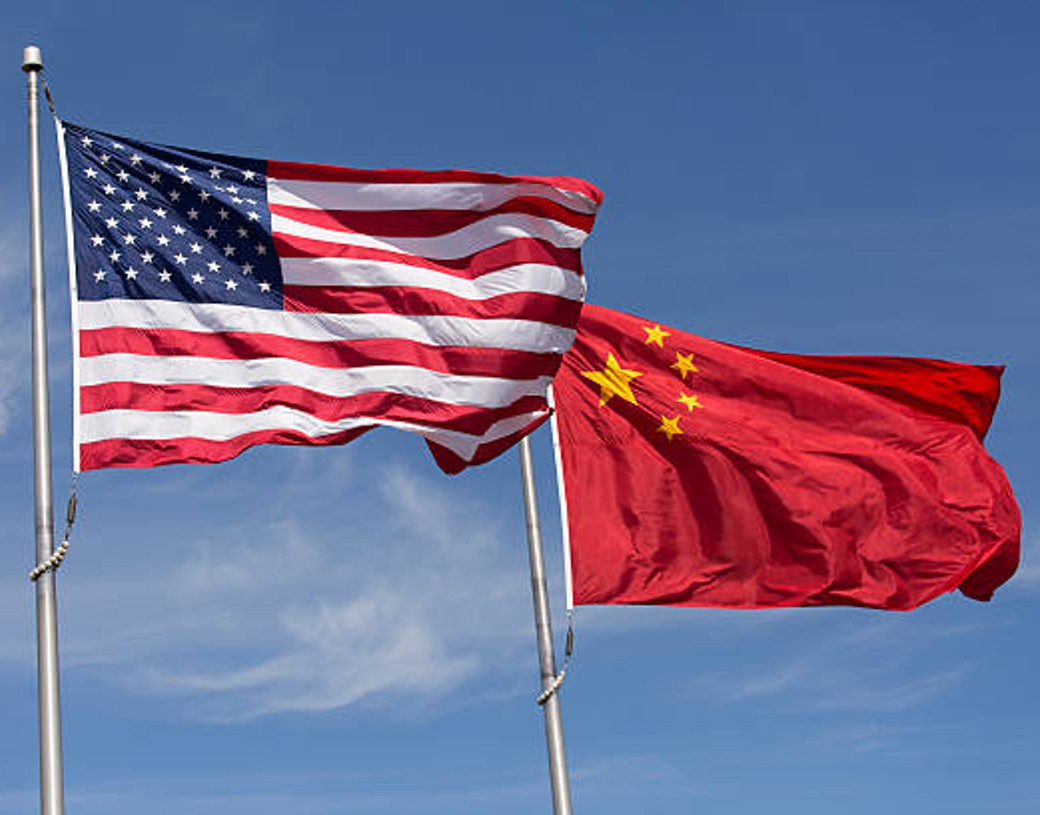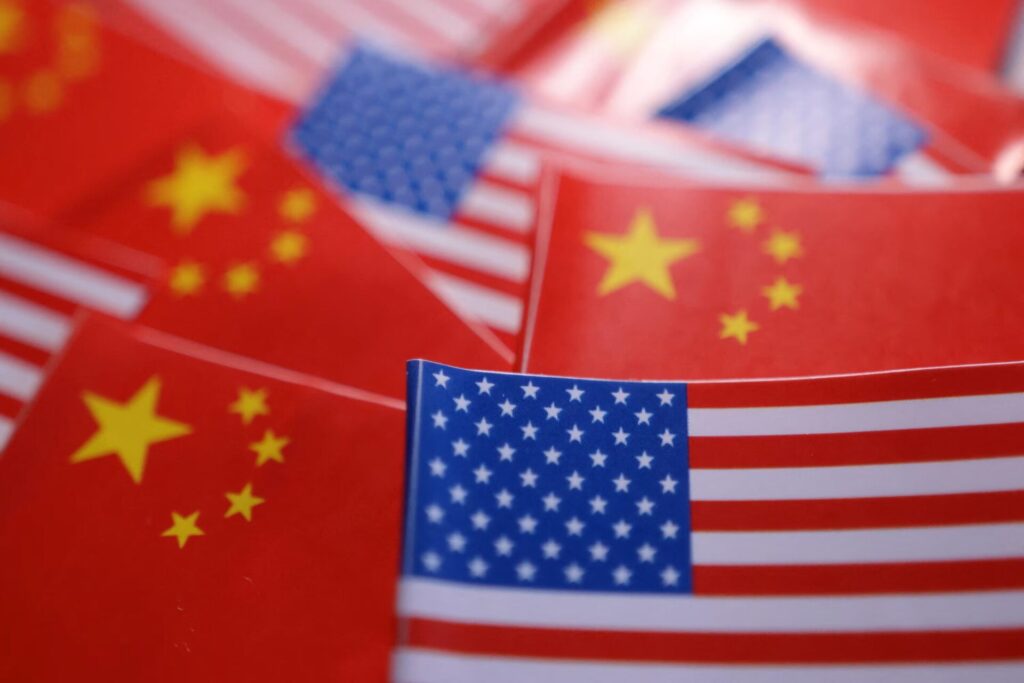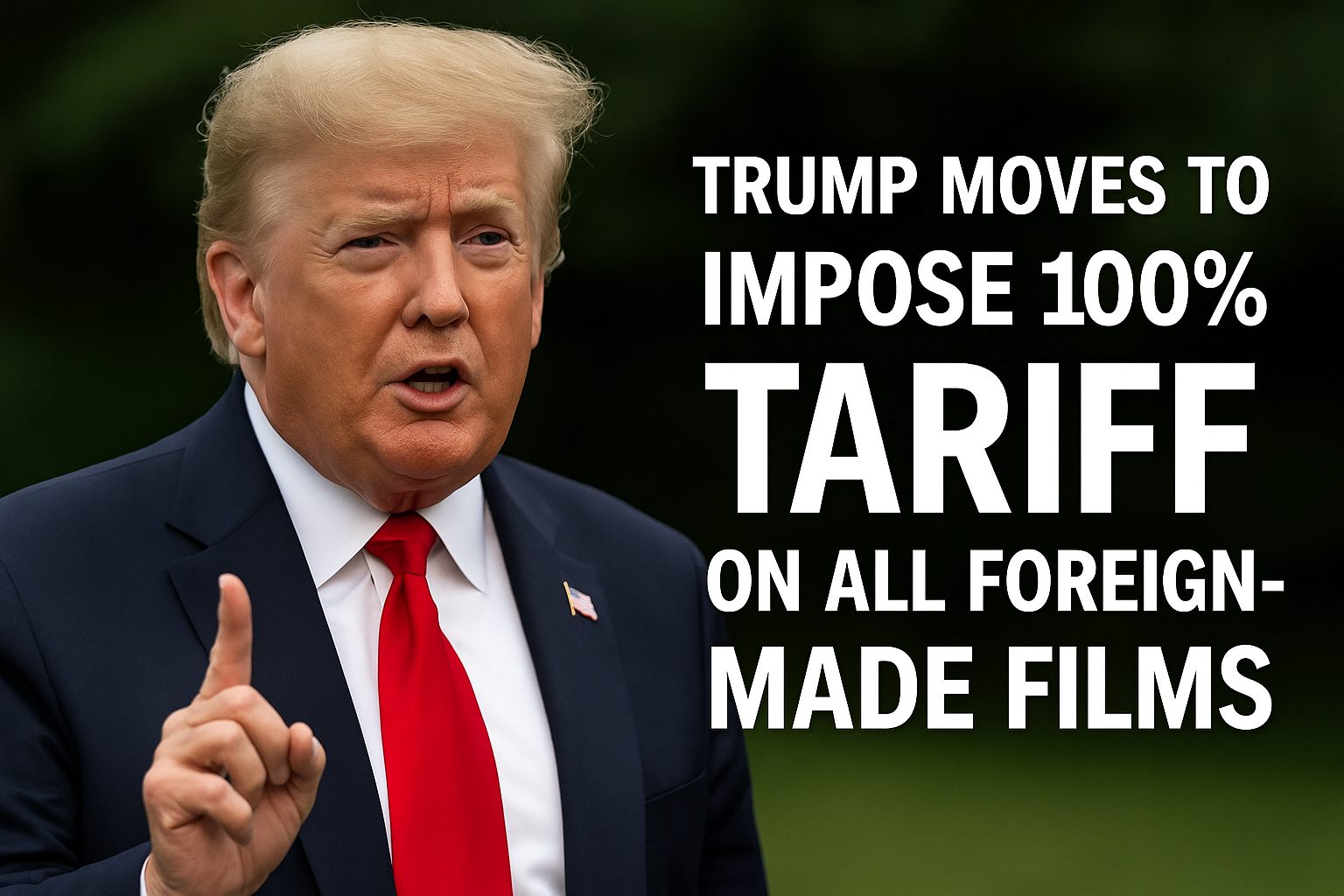China Grows 5.4% Despite Trump’s Tariffs, While U.S. Faces 1.8% Hit

China’s economy continues to demonstrate remarkable resilience amid escalating U.S. tariffs, with recent data showing an impressive 5.4% growth in Q1 2025. At the same time, the U.S. economy actually faces a potential 1.8% growth reduction due to its own trade policies, according to several economic analysts and the IMF.
Also Read: Bitcoin Will Be More Valuable Than the US Dollar: Venture Capitalist
Exploring China’s Growth Amid U.S. Tariffs and Global Economic Pressures

China’s Economic Performance Exceeds Expectations
China’s economy grew by about 5.4% in the first quarter of 2025, accelerating from 4.6% despite facing unprecedented U.S. tariffs and global trade tensions. Industrial production has also increased by around 6.5% year-on-year, while export growth has jumped to approximately 5.8% as exporters rushed shipments ahead of the tariff implementation. The Chinese government has, at the time of writing, set a 5% GDP growth target for 2025, and has also supported this with increased fiscal measures to counter the U.S. tariffs impact on economic resilience.
Domestic Consumption Drives Growth
Consumer spending contributed nearly 45% to China’s growth last year, outpacing both investment and exports. Right now, the government aims to create 12 million new jobs while maintaining unemployment at around 5.5% to boost spending power amid intensifying global trade tensions and China’s growth challenges.
Dr. Dan Steinbock was clear about the fact that:
“The expansion of domestic demand is no longer just a cyclical effort. It reflects the structural transformation of the Chinese economy away from exports and investment toward greater consumption and innovation.”
Also Read: Weaponization of the U.S. Dollar: $300B Frozen & the Global De-dollarization Shift
Innovation Powers Future Growth
China’s focus on “new quality productive forces” is yielding tangible results despite the U.S. tariffs and market volatility. Electric vehicles and 3D-printing equipment each grew by an astonishing 45% year-on-year, followed closely by industrial robotics. This technological advancement represents a crucial pillar of China’s economic resilience strategy against current market volatility and China’s growth pressures.
U.S. Tariff Impact Creates Global Ripples
While China’s growth remains surprisingly strong, IMF data shows U.S. tariffs could reduce American growth by approximately one-third to just 1.8%, with a concerning 40% probability of recession. Europe and Japan face even more severe consequences from these global trade tensions, with growth potentially plunging to 2.8%.
Dr. Dan Steinbock had this to say:
“According to new data by the IMF, U.S. tariffs could downgrade U.S. growth by a whopping third to 1.8%, with a 40% probability of a recession. Europe’s largest economies and Japan will suffer even more, with growth almost halved.”
Also Read: Top 3 Cryptocurrencies To Watch This Week
The Path Forward
China’s economy continues to show remarkable economic resilience against U.S. tariffs through its dual strategy of boosting domestic consumption and advancing innovation. However, the Trump administration may be considering further escalation, which could affect China’s growth prospects and increase market volatility.
Dr. Dan Steinbock stated:
“Last week, both U.S. Treasury Secretary Scott Bessent and President Trump blinked in the trade war the White House started. But as the U.S. has driven itself to the isolationist’s lonely corner in the international community, no rhetoric can offset the multi-trillion-dollar damage done to the world’s major trading economies and global economic prospects.”
Read More

Trump Moves to Impose 100% Tariff on All Foreign-Made Films
China Grows 5.4% Despite Trump’s Tariffs, While U.S. Faces 1.8% Hit

China’s economy continues to demonstrate remarkable resilience amid escalating U.S. tariffs, with recent data showing an impressive 5.4% growth in Q1 2025. At the same time, the U.S. economy actually faces a potential 1.8% growth reduction due to its own trade policies, according to several economic analysts and the IMF.
Also Read: Bitcoin Will Be More Valuable Than the US Dollar: Venture Capitalist
Exploring China’s Growth Amid U.S. Tariffs and Global Economic Pressures

China’s Economic Performance Exceeds Expectations
China’s economy grew by about 5.4% in the first quarter of 2025, accelerating from 4.6% despite facing unprecedented U.S. tariffs and global trade tensions. Industrial production has also increased by around 6.5% year-on-year, while export growth has jumped to approximately 5.8% as exporters rushed shipments ahead of the tariff implementation. The Chinese government has, at the time of writing, set a 5% GDP growth target for 2025, and has also supported this with increased fiscal measures to counter the U.S. tariffs impact on economic resilience.
Domestic Consumption Drives Growth
Consumer spending contributed nearly 45% to China’s growth last year, outpacing both investment and exports. Right now, the government aims to create 12 million new jobs while maintaining unemployment at around 5.5% to boost spending power amid intensifying global trade tensions and China’s growth challenges.
Dr. Dan Steinbock was clear about the fact that:
“The expansion of domestic demand is no longer just a cyclical effort. It reflects the structural transformation of the Chinese economy away from exports and investment toward greater consumption and innovation.”
Also Read: Weaponization of the U.S. Dollar: $300B Frozen & the Global De-dollarization Shift
Innovation Powers Future Growth
China’s focus on “new quality productive forces” is yielding tangible results despite the U.S. tariffs and market volatility. Electric vehicles and 3D-printing equipment each grew by an astonishing 45% year-on-year, followed closely by industrial robotics. This technological advancement represents a crucial pillar of China’s economic resilience strategy against current market volatility and China’s growth pressures.
U.S. Tariff Impact Creates Global Ripples
While China’s growth remains surprisingly strong, IMF data shows U.S. tariffs could reduce American growth by approximately one-third to just 1.8%, with a concerning 40% probability of recession. Europe and Japan face even more severe consequences from these global trade tensions, with growth potentially plunging to 2.8%.
Dr. Dan Steinbock had this to say:
“According to new data by the IMF, U.S. tariffs could downgrade U.S. growth by a whopping third to 1.8%, with a 40% probability of a recession. Europe’s largest economies and Japan will suffer even more, with growth almost halved.”
Also Read: Top 3 Cryptocurrencies To Watch This Week
The Path Forward
China’s economy continues to show remarkable economic resilience against U.S. tariffs through its dual strategy of boosting domestic consumption and advancing innovation. However, the Trump administration may be considering further escalation, which could affect China’s growth prospects and increase market volatility.
Dr. Dan Steinbock stated:
“Last week, both U.S. Treasury Secretary Scott Bessent and President Trump blinked in the trade war the White House started. But as the U.S. has driven itself to the isolationist’s lonely corner in the international community, no rhetoric can offset the multi-trillion-dollar damage done to the world’s major trading economies and global economic prospects.”
Read More

